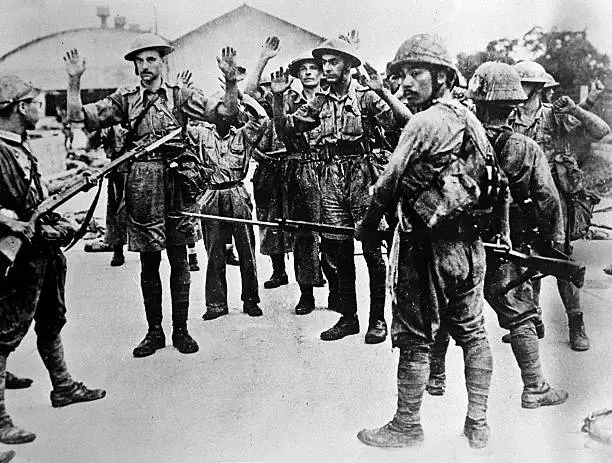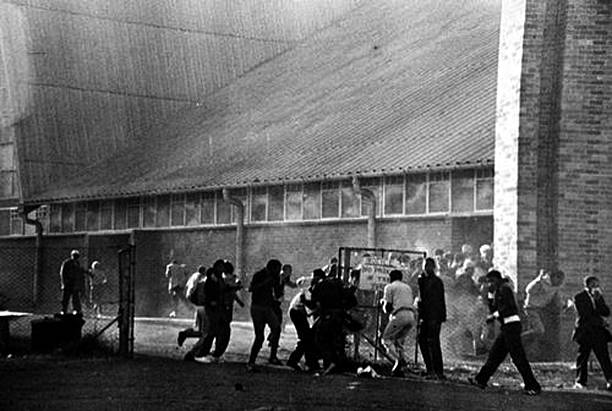When Singapore Fell: The Dark Hour of the War
In the early hours of February 15, 1942, the city-state of Singapore, a British colony in Southeast Asia, fell to the Japanese Imperial Army. The fall of Singapore was a significant turning point in World War II and marked the first time in more than 150 years that a British colony had surrendered to an enemy. The loss of Singapore was a major blow to British morale and prestige, and it shook the confidence of the Allies in their ability to defeat the Japanese. In this article, we will explore the events leading up to the fall of Singapore, its consequences, and its impact on World War II.
Background: The Malayan Campaign
The fall of Singapore was the culmination of the Malayan Campaign, a series of battles fought between December 1941 and February 1942. The Japanese Imperial Army launched a surprise attack on British Malaya, a territory comprising present-day Malaysia and Singapore, on December 8, 1941, just hours after the attack on Pearl Harbor. The British, who were caught off guard, were forced to retreat from the northern parts of Malaya to Singapore, which they believed to be impregnable.
The Battle of Singapore
Despite having a superior number of troops and better equipment, the British were ill-prepared to defend Singapore. The island was heavily fortified on the landward side, but the seaward defenses were weak, and the British had not taken into account the possibility of a landward attack. The Japanese, however, launched an amphibious assault on the island, landing troops at various points along the coast.
The British were initially successful in repelling the Japanese attacks, but their defenses were eventually overwhelmed by the sheer number of Japanese troops. The Japanese employed novel tactics, such as using bicycles to move troops quickly and silently and infiltrating the British lines by dressing up as Indian soldiers. The British were also hampered by supply shortages, as Japanese air and naval superiority prevented them from resupplying their troops.

World War II, The Fall of Singapore, 15th February 1942, Some of the 120,00O British, Australian, Indian and Chinese forces captured by the Japanese forces, stand with their hands up, with Japanese guards their bayonets fixed.
After several days of intense fighting, the British realized that they were fighting a losing battle. The decision was made to surrender, and on February 15, 1942, Lieutenant-General Arthur Percival, the British commander, signed the instrument of surrender. More than 80,000 British, Indian, and Australian troops became prisoners of war, marking the largest surrender in British military history.
Consequences and Impact
The fall of Singapore had far-reaching consequences for both the British Empire and the Allies. It was a significant blow to British morale and prestige, as Singapore had been regarded as a symbol of British power and invincibility. The loss of Singapore was a source of national shame and had a profound impact on the British psyche. Winston Churchill, the British Prime Minister at the time, described the fall of Singapore as the “worst disaster” and a “blow to the British Empire.”
The fall of Singapore also had strategic implications. The Japanese now had control of a major seaport and airbase, which they used to launch further attacks on Allied positions in Southeast Asia. The loss of Singapore also opened up the Indian Ocean to Japanese naval forces, which posed a threat to British interests in the region.
The fall of Singapore also had a psychological impact on the Allies. The loss of such a seemingly impregnable fortress shook the confidence of the Allies in their ability to defeat the Japanese. The fall of Singapore was a turning point in World War II, as it marked the end of British dominance in Southeast Asia and the beginning of the rise of Japan as a major power in the region.
Conclusion
The fall of Singapore was a significant turning point in World War II, marking the first time in more than 150 years that a British colony had surrendered to an enemy. The loss of Singapore had far-reaching consequences for both the British Empire and the Allies, shaking their confidence and leaving a profound impact on the British psyche. The fall of Singapore also had strategic implications, as it gave the Japanese control of a major seaport and airbase, and opened up the Indian Ocean to Japanese naval forces.
Despite the devastating impact of the fall of Singapore, it also had important lessons for military strategists. It highlighted the importance of modernizing and strengthening coastal defenses, taking into account the possibility of a landward attack, and ensuring adequate supplies and logistics for troops.
Today, the fall of Singapore remains a significant event in the history of World War II and a reminder of the devastating toll that war can take on nations and individuals. It serves as a cautionary tale about the importance of preparedness and resilience in the face of adversity.




what if percival had stood his ground and fought .what would have been the outcome